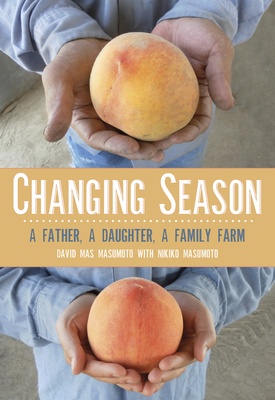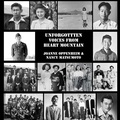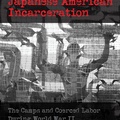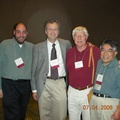In the mid-1980s, while researching the World War II incarceration experience of Americans of Japanese ancestry at the Gila River Relocation Center in south central Arizona, I discovered a brief yet very enlightening 1982 autobiographical volume on this subject by David Mas Masumoto. Entitled Distant Voices: A Sansei’s Journey to Gila River, it was self-published by the 28-year-old author-agriculturalist under the aegis of the Inaka Countryside Press in Del Rey, Calif. (20 miles south of Fresno). Five years later another book by Masumoto, bearing the same imprint, commanded my rapt attention: Country Voices: The Oral History of a Japanese American Family Farm Community. The earlier work represented for Masumoto a means to reflect on his personal pilgrimage to the desolate site on Native American land where his youthful U.S.-born Nisei parents — imprisoned with their respective immigrant Issei parents — first met; this book also afforded him an opportunity to meditate upon both his Japanese heritage and the impact of the mass wartime imprisonment upon the Nikkei community. Country Voices, on the other hand, served Masumoto as a vehicle, via the village of Del Rey and the interpretive power of oral history, for transporting its readers into a vital ethnographic encounter with the historical development and sociocultural character of a “typical” multi-generational Japanese American family-farm community.
Upon reading Country Voices, I grasped instinctively what the legendary oral historian Studs Terkel had meant when he characterized it as “a gem” and “an anthem to the human spirit” — a heretofore untold story of the Japanese American farmers: “their dreams, their hopes, their ordeal, their resilience.”
I was sufficiently moved to assign this book to the required “American Character” class I then taught through the American Studies Department at California State University, Fullerton, and I invited Masumoto to visit the class and engage the students in a discussion of his new masterpiece. I can no longer recall the details of his presentation, but I do recollect that central to it was an artifact, a chunk of hardpan, which he offered up for contemplation by the students, none of whom were of Japanese ancestry and very few of whom even associated Japanese Americans with farming. Although Masumoto never said so directly, he strongly implied that, in order to fathom the essence of Nikkei Del Rey as a farm community, to savor the sweetness of its harvests and the soundness of the residents’ down-to-earth truths, it was necessary to factor in the daily struggle its denizens waged, actually and metaphorically, against the dense layer of soil found below the uppermost topsoil of their land — that is, the intractable hardpan, which impedes drainage of water and restricts the growth of plant roots.
Even though I have not personally been in touch with Masumoto since 1988, in the intervening years between then and now, I have read a number of his many poignant and timeless books, as well as a spate of his correlated Fresno Bee columns. There is absolutely nothing flashy about his writing and he never uses it to flaunt his celebrity or to display his erudition. He “travels” a great deal, but mostly, or so it seems, within either the confines of his 80-acre organic farm in Del Rey or in the crevices of his fertile imagination. A career family farmer, the two dominant topics in his writing are, not surprisingly, “family” and “farming,” though as a core memoirist he often ruminates about such diverse things as feelings of the heart, matters of the spirit, questions of vocation, the concerns of life and death, and what has been termed “intergenerational transmission of knowledge.”
All of these subjects are infused into Changing Season, the writing of which was done primarily by David Mas Masumoto, but strategically and artfully supplemented by his daughter Nikiko in what she cannily refers to as her “field notes.” Not only does the book’s title and subtitle underscore its preoccupation with family, farming, and strongly imply intergenerational transmission, but so also do the dedications by the two Matsumoto authors. Mas Masumoto writes: “To my mom, who worries every season. You will always be part of this farm.” Nikiko states: “To my jiichan (grandfather); I miss you every day.”
As for the text of Changing Season, in the words of one of its reviewers, Naomi Starkman, it is about, “above all, the passing on of experience and the farm itself to the next generation, specifically, to Mas Masumoto’s daughter Nikiko.” The book, states Starkman, “is at its heart a love story of duty and honor to both the family and the land.” It is a book written by Mas upon entering his 60s and while still in recovery from a 2014 triple-bypass heart surgery. Feeling (but not bemoaning) his mortality, he reflects backward on some lessons that his late father taught him about farming — “the fruit that gets the most sunlight will taste the best. Peaches worship the sun, and so should you.”— And also about life — “Fate was built on everyday, seemingly simple deeds. Tend to your work. Trust your acts. Believe in yourself.”
He also contemplates some overarching paternal lessons that he should transmit to Nikiko: “What is allowed to grow in our lives when we pare down? What are we missing when we look at what is lost instead of what remains? What is the bigger picture?”
Keeping things very much down to earth, Mas Masumoto recollects at one point how after his father’s stroke he had to compromise his dignity by assisting him with his toilet duties, and then shares something with readers that he half-seriously joked about with his two kids: “Someday one of you might have to wipe my ass. That may be the ultimate act of sacrifice, when you learn to lean on someone.”
Reading this passage, my mind was brought back to that hunk of hardpan he had shown to my students over three decades ago, his way of communicating how pivotal the role of struggle of one sort or another is in endowing us with the truths we need to face the challenges both of living and dying with equanimity and grace.
Changing Season: A Father, A Daughter, A Family Farm
By David Mas Masumoto with Nikiko Masumoto
(Berkeley, Calif.: Heyday, 2016, 192 pp., $16, paperback)
*This article was originally published in the Nichi Bei Weekly on January 1, 2017.
© 2017 Arthur A. Hansen / Nichi Bei Weekly








